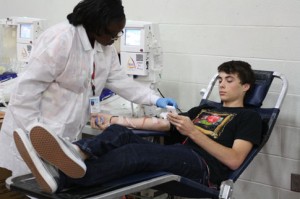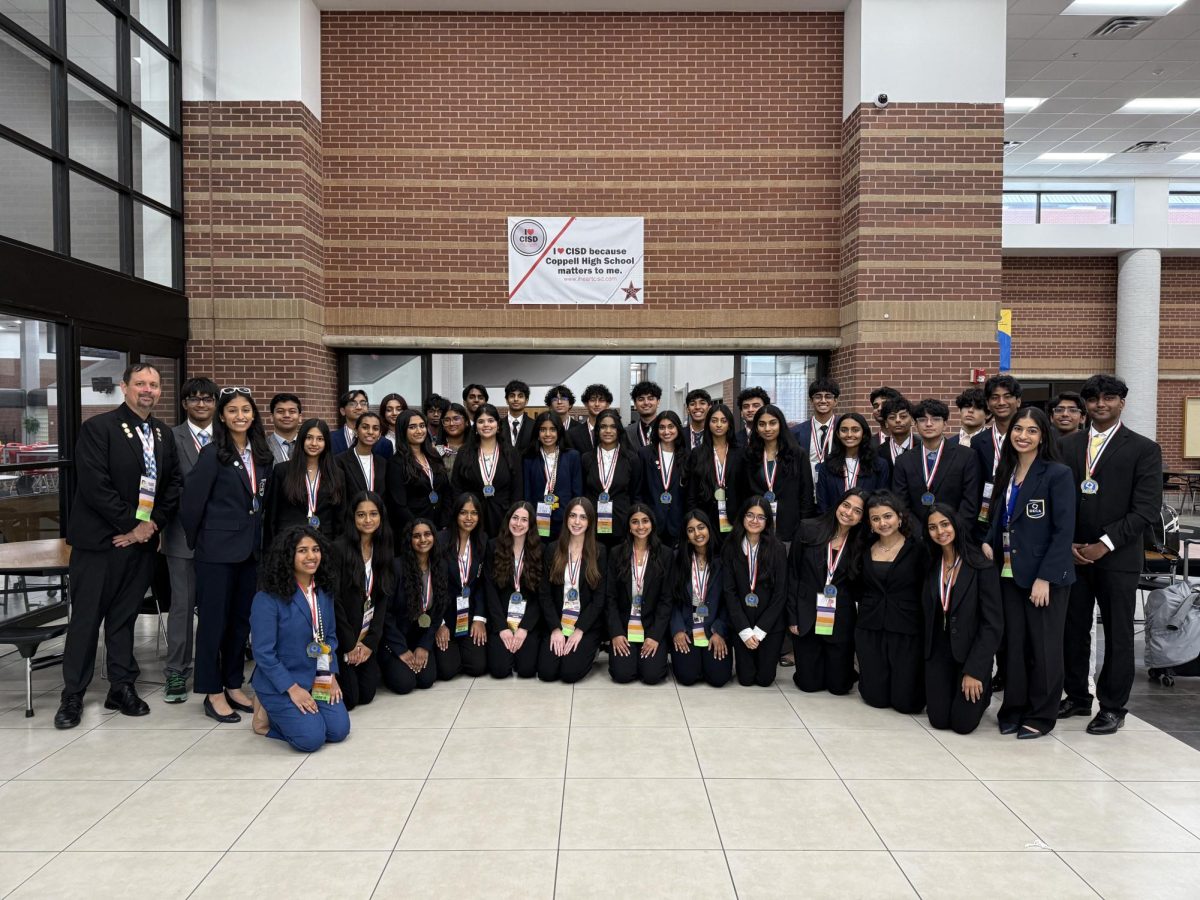By Julia Kim
Staff Writer
Video by Savannah Shealy and Sierra Nelson
KCBY
One… two.
Someone in the United States needs blood. A day passes, more than 38,000 blood donations are needed. Two more seconds have just passed, adding another faceless name to the never-ending list. Blood cannot be made. It cannot be manufactured. Blood can only come from generous donors, a pool that saves millions of lives.
On Oct. 6, Carter BloodCare hosted its biannual bloodrive sponsored by the National Honor Society, encouraging hundreds of students and adults alike to donate blood.

“Donating blood is a great thing to do because everybody needs blood,” senior donor Sydney Kapp said. “You have to do these kinds of things when the opportunities there – when it’s here at our convenience and available at school and when you’re healthy; it eliminates the need to drive all the way to a clinic.”
Students interested in donating blood were and are required to be at least 16 years of age with parent permission. Those older than 17 were only required to have their driver’s license. In addition to meeting age obligations, students also had to have normal hemoglobin levels, heart rate and body temperature.
Carter BloodCare offered a new service to donors this year by checking cholesterol levels for free, an important factor that is often overlooked by the majority of teenagers. High, abnormal levels of cholesterol can lead to coronary heart disease, high blood pressure and quite possibly heart attacks and strokes.
“It’s a new [addition] this year,” Carter BloodCare recruiter consultant Ellen Dinkins said. “We got a grant for the high schools which led us to provide this new service for our donors. Normally, patients have to go to their physicians and pay, but we did it for free in addition to checking blood types.”
Male donors that weigh over 135 pounds and females over 155 pounds had the opportunity to donate double the blood – double the red blood cells and platelets. The process was lengthier for this manner of donation because a machine worked to return fluids back to the body.
“The plasma from the blood can be immediately put to use for burn victims,” Dinkins said. “Carter BloodCare supplies blood to over 360 hospitals in the Metroplex. The community is giving, and we’re giving back to the same community.”
Following these donations, the blood is sent to the lab for testing of any possible problems, and within 42 days, the life shell, the blood will be at use in a hospital.
Volunteers in NHS who did not meet the physical requirements got engaged in different ways throughout the day by shadowing and assisting the nurses. Students in NHS were originally told this year that a service hour would not be given for donating blood.
“We set it up like this, so students would sign up for the greater good,” NHS president senior Judy Hong said. “The officers decided today that those who donated would receive one service hour. The turnout was great; over 240 people signed up, and there were a lot of walk-ins.”
Several minutes passed while this story was read. Numerous more patients were added to the list.








